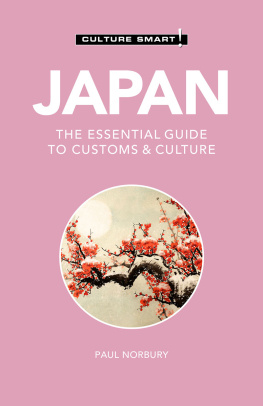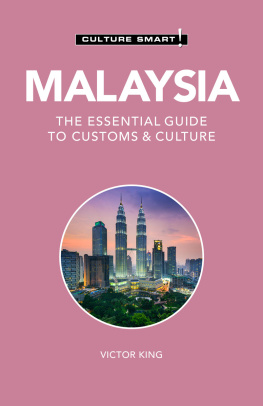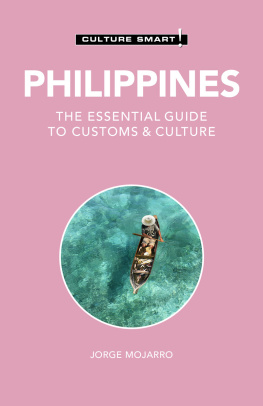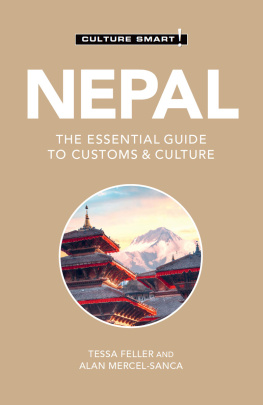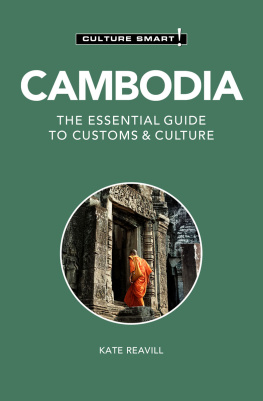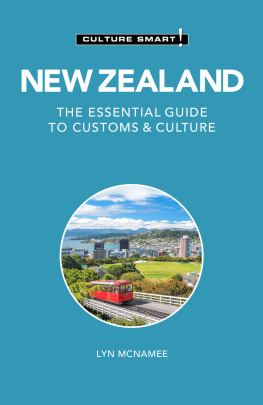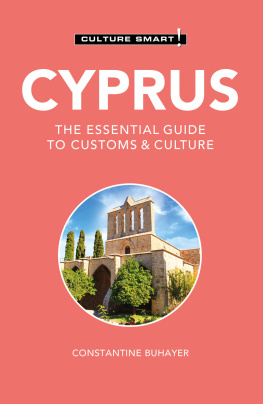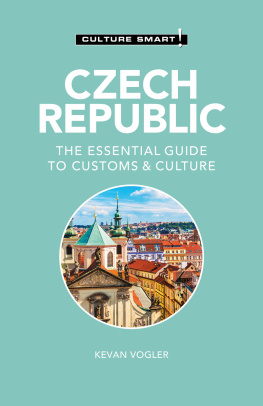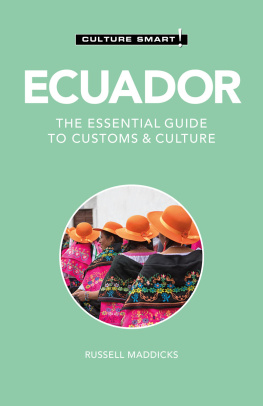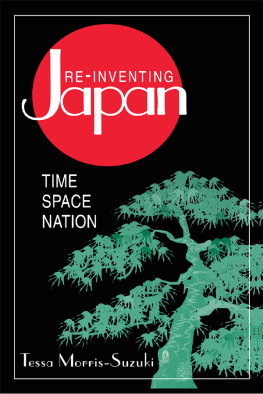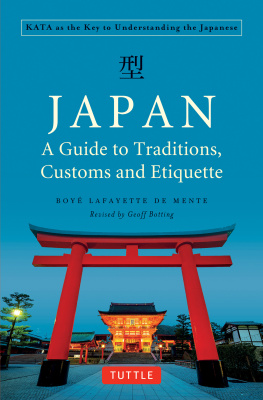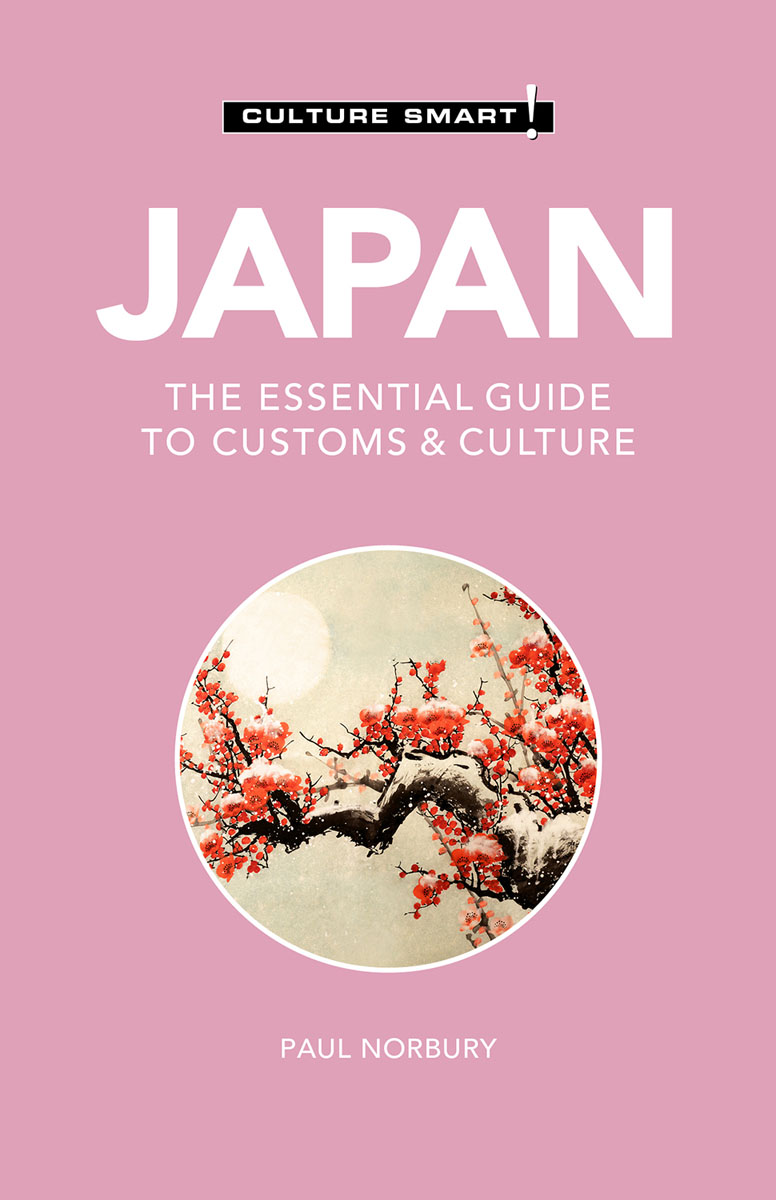
The real voyage of discovery consists not in seeking new landscapes, but in having new eyes.
Adapted from Marcel Proust, Remembrance of Things Past.
ISBN 978 1 78702 892 0
British Library Cataloguing in Publication Data
A CIP catalogue entry for this book is available from the British Library
First published in Great Britain
by Kuperard, an imprint of Bravo Ltd
59 Hutton Grove, London N12 8DS
Tel: +44 (0) 20 8446 2440
www.culturesmart.co.uk
Inquiries:
Design Bobby Birchall
Printed in Turkey
The Culture Smart! series is continuing to expand. All Culture Smart! guides are available as e-books, and many as audio books. For further information and latest titles visit www.culturesmart.co.uk
ABOUT THE AUTHOR
PAUL NORBURY has been closely associated with Japan and Asian Studies as publisher, editor, and author since the early 1970s, principally through his various imprints: Paul Norbury Publications, Japan Library, Global Oriental, and most recently Renaissance Books. In 2003 he received the Japan Society Award, in 2011 the Order of the Rising Sun (Japanese Government), and in 2013 the Order of Civic Virtue (Government of the Republic of Sakha, Yakutia, Russian Commonwealth). He is also the author of Culture Smart! Britain.
COVID-19
The coronavirus pandemic of 2020 affected millions of people around the world, causing unprecedented social and economic disruption. As the impact of this global crisis continues to unfold, in many countries social norms are being challenged, and enduring changes will be reflected in future editions of Culture Smart! titles.
CONTENTS
MAP OF JAPAN

INTRODUCTION
Japan is often thought of as a far away country where they do things differently, and this is indeed true. The Japanese have, for example, a unique language not shared by any other group of people, and a unique religionShinto. Yet Japan is becoming increasingly Western in its norms, expectations, and way of life. Furthermore, Japan today participates more widely in the international arenas of sport, music, food, fashion, design, robotics, R&D collaboration, overseas aid, and soft power diplomacy than ever before.
However, despite this pursuit of modern living, the core values of traditional Japana sense of duty rather than of rights, the pursuit of harmony as an instinctive need at all levels of society, and respect for each other throughout lifenot least in old ageendure. The visitor should be aware that notions of uniqueness also endure in the Japanese psyche. Japan is one of the most pleasant and safest countries to live in; it has one of the best medical infrastructures, and enjoys the longest life expectancy in the world (85.8 years on average).
Japan functions mainly as a consensus-based society, but Japanese genius and eccentricity point to an unexpected strand of individualism. What appears to be the innate aesthetic sensibility of the Japanese is evident everywherein their literature, arts and crafts, gardens and buildings, design, and technology. Yet, there is a striking paradox here that the visitor needs to prepare for, namely, the sprawling ugliness of metropolitan Japan that manages to challenge all the senses!
Beyond the current preoccupations of faltering economic growth, and concerns relating to security and climate change, shared with much of the industrialized world, Japan today finds itself engaged with other issues revolving around the so-called modernizing agenda of former prime minister Shinz Abe (the longest-serving in Japanese history), looking to restore Japans national pride, its economy, and its role in the worldall in the context of a declining and rapidly aging population and his desire to change Japans peace constitution.
Nevertheless, regardless of Mr. Abes political legacy, Japans democratic foundations are solid. Furthermore, its economy is the third largest in the world and it remains one of the most attractive and secure destinations for investment. It continues to excel at innovation in technology and the new sciences, and is among the worlds largest funders in research as a percentage of GDP, and continues a major player on the world stage.
In May 2019, a new era for Japan began when Crown Prince Naruhito became emperorsignaling, perhaps, a new Japan and a new optimism. The era name reiwa is significant, comprising two characters meaning good fortune and harmony. Hosting the Rugby World Cup in 2019 and the XXXII Olympiad in 2021 will put Japan back on the map.
This new, updated edition of Culture Smart! Japan provides information and insights into peoples attitudes and behavior and practical advice to help you discover the brilliance and charm of this complex, rich, and dynamic society.
KEY FACTS
Official Name | Nippon | Japan |
Capital City | Tokyo | Population (23 historic wards) 9.260 million |
Main Cities | Osaka, Nagoya, Kobe, Yokohama, Fukuoka, Sapporo |
Area | 143,660 square miles (372,079 sq.km.) | Japan uses the metric system. |
Climate | Moist temperate |
Currency | Yen | Paper: Yen 10,000, 5000, and 1000 Coins: Yen 500, 100, 50, 10, 5, and 1 |
Population | 126 million |
Ethnic Makeup | Approx. 98.5% Japanese; Approx. 1.5 % others | Other principal nationalities: Korean, Chinese, Brazilian |
Family Makeup | Average family size is 2.62 people. The birth rate is 1.43. | In opinion polls, over 80% of Japanese perceive themselves as middle class. |
Language | Nihongo (Japanese) | Principal other languages taught in schools are English, French, Spanish, and German. |
Religion | There is no state religion. Most Japanese are both Shinto and Buddhist. | 1.5% are Christians. Increasing interest in new religious movements |
Government | Japan is a constitutional monarchy. It has universal adult suffrage (from age 20), a written Constitution, and is a parliamentary democracy with an upper and a lower chamber (Representatives in lower house with 511 seats, and Councilors in upper house with 252 seats, both elected). The parliament is known as the National Diet. According to the 1946 Constitution, the Emperor is the symbol of the state and unity of the people. Japan has 47 prefectures. Prefectural governors, as well as city, town, and village mayors are all elected. |
Media | NHK (Japan Broadcasting System) is Japans public broadcasting corporation. | There are more than 100 daily newspapers, led by Yomiuri, Asahi, Mainichi, Nihon Keizai, and Sankei. |
Media: English Language | English-language newspapers (print and online) include: |

